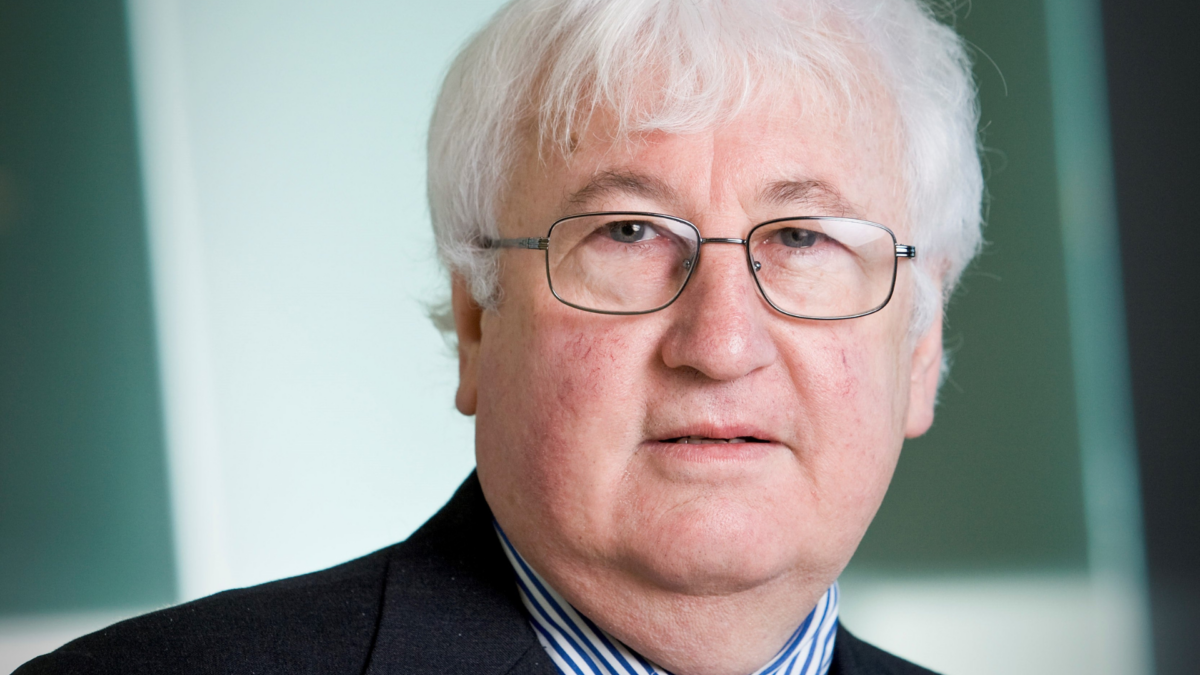Improve ‘outrageous service’ of death benefits, Kelty warns industry funds
The former secretary of the ACTU and a principal architect of Australia’s compulsory superannuation system, Bill Kelty, has never been one to mince his words – and he’s not starting now.
In a wide-ranging interview about superannuation in a small conference room at the Fox Classic Car Collection in Melbourne’s Docklands, he methodically cites the system’s successes, whether it’s enhancing people’s dignity in retirement, increasing the supply of capital and reducing its cost, improving the balance of payments or allowing for innovative investments.
That’s the pro-market Kelty speaking, the economist cum union official cum Reserve Bank board member who doesn’t have an issue with a profit. But that’s just part of the equation, with profitability needing to go hand in glove with a social obligation, especially as it relates to profit-for-member super funds, more commonly known as industry funds. Certainly, it explains why he’s seeing red – bright red – when it comes to how these funds are servicing members, especially death benefits.
“When it comes to helping people transition to retirement, I think they’re handling that okay. But the problem is with death benefits. It’s been handled very, very badly. It’s people’s money. They leave to their kids, but often it just takes too long for them to get it.”
For Kelty, this is what happens when a super fund stops being a collective organisation with a primary focus of looking after its members and becomes just another financial institution.
“It’s an outrage that people have to wait for a year, even two, to receive a death benefit – and so unnecessary. It should just an issue of contacting them and saying, ‘here it is. You need to take the following steps and then it’s yours. It should be a simple process that takes a matter of months – not years.”
He appreciates the sums might not be small, that due process must occur. “So, you’ve got to be careful. But why can’t a fund call you in? Why can’t they deal with it directly and within three months?
“Why can’t the fund say these are the three things that need to be done, and once that’s happened, the money gets paid. After all, have you ever heard of a funeral director turning up three months after the person died?”
Kelty’s view is that the funds have become “over-imbued” with a sense of their investment capacity and have “under-invested” in their social capacity.
“Why? Because it’s more exciting. When I was actively involved with the industry funds, I was only interested in investment strategy. I wasn’t interested in member service.
“But there were people vitally interested in servicing members, who were really concerned about achieving the right outcomes for members – and doing it promptly. These are the employees that funds should be nurturing.”
Kelty doesn’t subscribe to the view that the size of the industry funds – a number now have assets exceeding $100 billion and the sector in total has about $1.5 trillion – arguing that size has its advantages.
But when arrogance comes with size, that’s the issue. For him, that’s where the market intervenes, where if a fund is failing its members, then there are alternatives.
“What’ these funds must remember is that they are social organisations – not just financial institutions. When you sub-contract out your social obligation to somebody else, well, why exist at all? If you sub-contract your investment strategy and your social obligation to other bodies, what are you? You’re basically an administrator.
“The reason induystry funds should work better is that the people there should be saying, ‘I’m concerned about the members. I have a social obligation, so I want them serviced properly. They can contract it out to a company who’s got a good track record, who’s genuinely concerned, but that must be the criteria.”
From Kelty’s perspective, this is what happened to the banks. “They grew bigger, with government underwriting them. With size came arrogance and, inevitably, greater concern with the financial returns to management. It’s just the natural order.
“This is what happens when they disassociate themselves from the social function. I suspect the bank manager who backed Lindsay Fox (Kelty sits on the Linfox board as a non-executive director) because he thought he was entrepreneurial, was a quality kid, and therefore was prepared to back him, that wouldn’t happen today.”
“The super funds are no different. They’ve got to be careful to get the balance right between the social and economic functions. When I was on a super fund board, all the money went to the ACTU. Now you’re on $200,000 to be a board member. Executives are getting paid $3 million a year, then $5 million and perhaps $20 million in 10 years. On that sort of money, do you really give a f*** about the members?”
While Kelty takes strong issue on member service, he remains totally convinced of the merits of compulsory superannuation, of being of what he describes as symbiotic of the “Australian covenant”.
“Half of politicians don’t understand Australia. Australia’s a covenant, with the Labor Party being the champion of the big safety net and the Liberal Party the champion of individual choice and individual thrift.
“What happens is most of our policy meld these themes together. So, you have national health insurance (Medicare) and private health insurance. You have a minimum wage and collective bargaining.
“With superannuation, it’s this melding that gives the system its integrity. In a perfect world, you mightn’t have the current tax structure – the left constantly claims it’s too generous to the well-heeled – but by having more people committed to it, you make it stronger as they see they have more options.”











